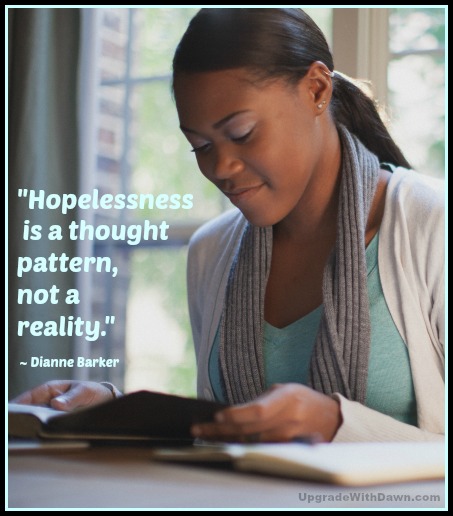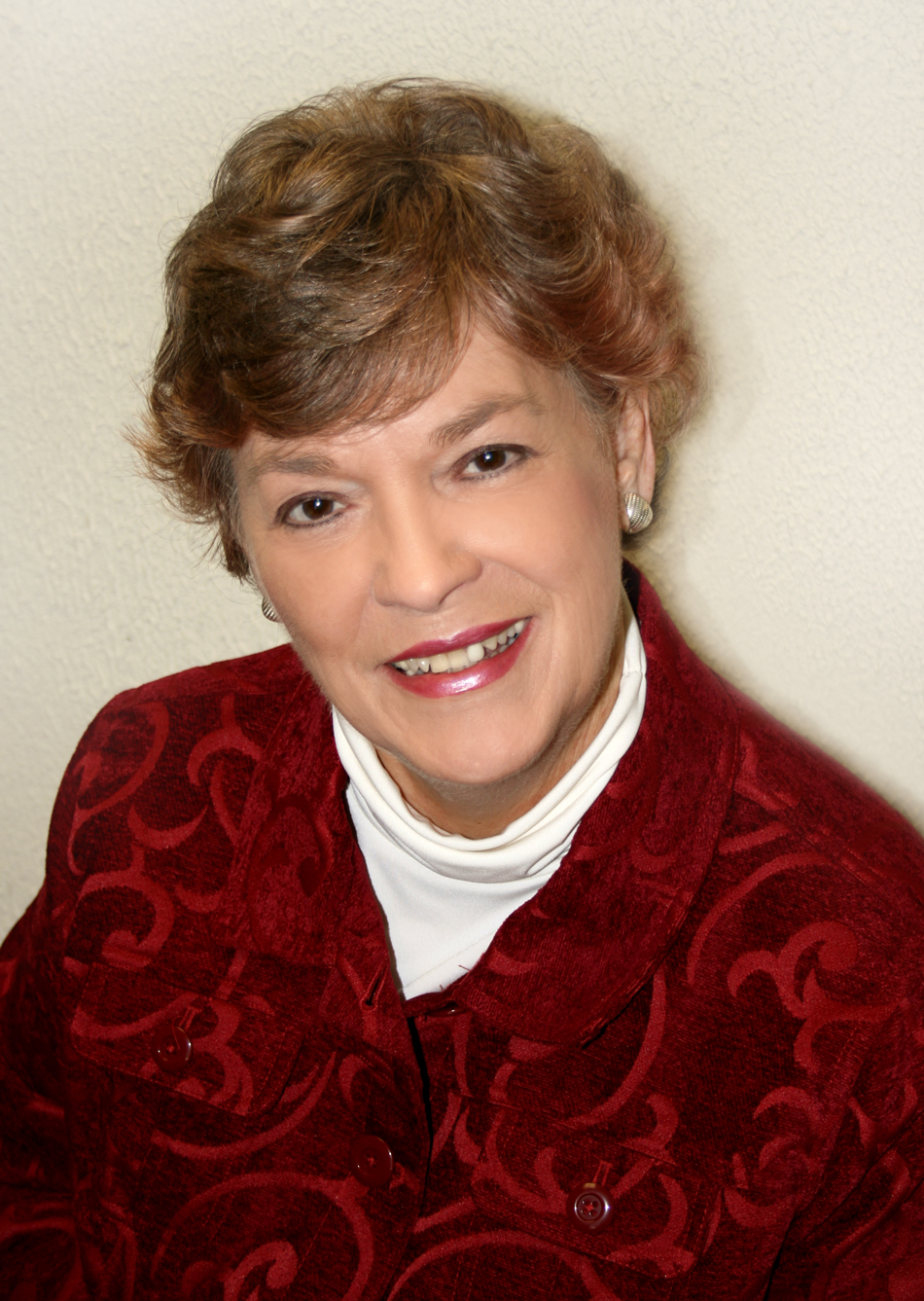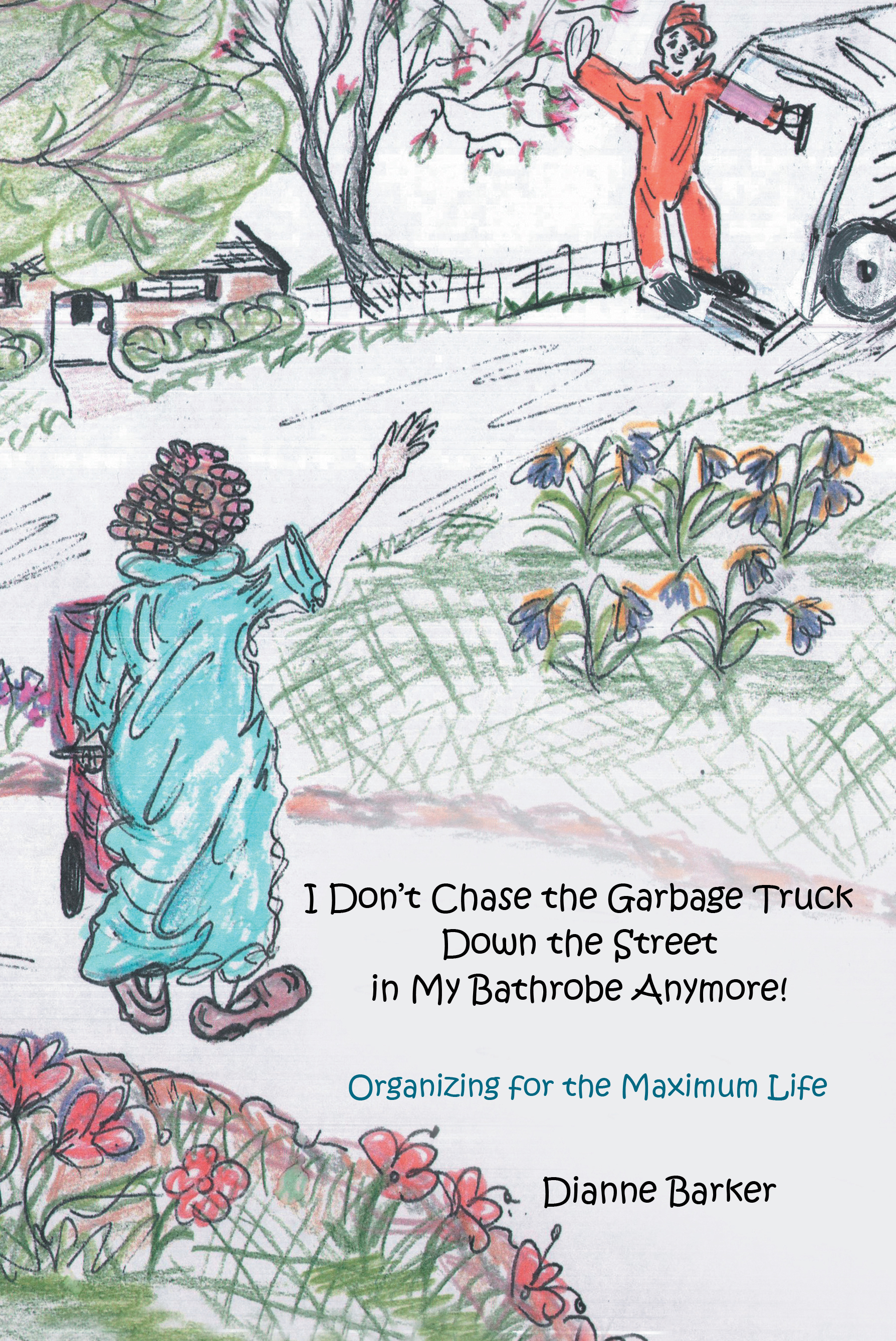Hope When It Hurts
I've read a lot of articles about hope lately, and many of them were "fluff," but Shonda Savage Whitworth's article is deep truth, because it comes from a deep rooting in the Word of God. In this Biblical Thinking UPGRADE, she encourages us to seek true hope when we hurt.
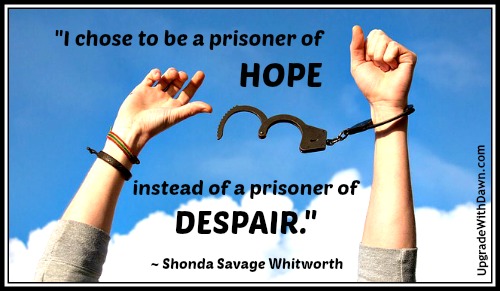
"My dreams for my family’s future shattered when my oldest son was sentenced to prison," Shonda says.
"His conviction demolished the good mother image I erected in my mind. With this image decimated, my emotions spiraled into a dark abyss."
I (Dawn) know several families with incarcerated children, and they all deal with tough issues, some struggling everyday with hope.
Shonda continues . . .
After my son began his life in state prison, my life of being held captive by guilt, shame, and condemnation started. Despair enveloped me like a heavy fog keeping the light from shining in my life.
We read in Proverbs:
“Hope deferred makes the heart sick, but a dream fulfilled is a tree of life” (Proverbs 13:12, NLT).
The anguish gave way to hopelessness, and I was diagnosed “situational adjustment disorder,” which is a classification of anxiety and depression.
My personal life stalled while the world around me moved forward.
While the life I had and the future I expected dissipated, I knew I could not remain stuck in the sorrow. My family needed me to be present in their lives.
This realization allowed a ray of sunshine to peek through the fog of despair and I encouraged myself in the Lord, just as David did when he was greatly distressed.
Here are three ways I found hope when it hurt.
1. Praising God
In my pain, I played worship music and sang along to praise the Lord. Many times, the words to the worship songs triggered tears, so I just cried out, “No matter what, You are God.”
Dr. John G. Mitchell wrote, “To give thanks when you don’t feel like it is not hypocrisy; it’s obedience.”
Hebrews 13:15 tells us, “Therefore by Him let us continually offer the sacrifice of praise to God, that is, the fruit of our lips, giving thanks to His name” (NKJV).
There are times when giving thanks out of obedience is a sacrifice, but the reward is worth it.
Through worship, my focus turned to the Lord and off of my circumstances. As a result, new hope poured into my spirit.
2. Meditating on the Word
A colleague told me, “Shonda, be sure you put your hope in God because man will fail you.” In hindsight, I realized that I put my hope in the attorney and the justice system instead of God.
To pull myself out of the darkness, I read the Bible daily and Scriptures about hope popped up. As I meditated on the word, I learned hope in God is our expectation in what He can do, not what I can do or what any other person does.
Then I came across Zechariah 9:12:
“Return to your fortress, you prisoners of hope; even now I announce that I will restore twice as much to you” (NIV).
At that moment,
I chose to be a prisoner of hope instead of a prisoner of despair.
As a prisoner of hope, I released my expectations of man and the system and placed my confidence in the Lord.
3. Praying
Before the tragic events unfolded that led to my son’s imprisonment, my prayer was “Lord, I ask You to hedge him in so he cannot follow his own path” (based on Hosea 2:6).
I believed my prodigal son would find his way home. Instead, he went to prison.
During the months leading up to the trial, I prayed for my son’s freedom. After his conviction, my hope dissolved and my desire to pray evaporated.
As I meditated on Scriptures, Jesus taught the disciples to pray, “Your will be done” (Matthew 6:10) And Jesus prayed, “nevertheless not My will, but Yours, be done” (Luke 22:42).
My prayers were the opposite, so I began to pray like Jesus taught and modeled. As a result, my perspective changed.
I now see how prison saved my son’s life—both in the eternal and in the natural.
In my hurt, I found hope as I offered up the sacrifice of praise, meditated on the Word of God daily, and prayed God’s will.
Through these daily disciplines,
- the fog of despair lifted,
- my good mother image has been replaced with knowing who I am in Christ,
- and my life is moving forward filled with joy and peace as I know God, my source of hope.
If you’ve lost hope due to hurtful circumstances in your life, my prayer for you is from Romans 15:13:
“I pray that God, the source of hope, will fill you completely with joy and peace because you trust in him. Then you will overflow with confident hope through the power of the Holy Spirit” (NLT).
Are you struggling with hope today? Which of these three ways to find hope when you hurt is missing or lacking in your life? How can you change that today?
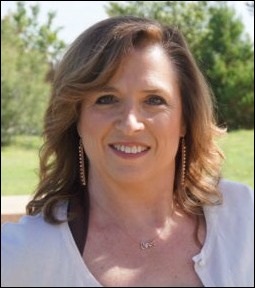 Shonda Savage Whitworth is the founder and president of Fortress of Hope Ministries, Inc., giving hope to those with incarcerated family members. She is a speaker and author who connects with her audiences through her transparent testimony of personal tribulations and triumphs in Christ. Her book, Appeal to the Courts of Heaven: Prayers for Prisoners and Prison Families, is scheduled to release in the fall of 2019. You can read more about Shonda’s unexpected prison family journey on her blog
Shonda Savage Whitworth is the founder and president of Fortress of Hope Ministries, Inc., giving hope to those with incarcerated family members. She is a speaker and author who connects with her audiences through her transparent testimony of personal tribulations and triumphs in Christ. Her book, Appeal to the Courts of Heaven: Prayers for Prisoners and Prison Families, is scheduled to release in the fall of 2019. You can read more about Shonda’s unexpected prison family journey on her blog
Graphic adapted, courtesy ofLechenie Narkomanii at Pixabay.
 Post a Comment → Posted on
Post a Comment → Posted on  Tuesday, April 23, 2019 at 9:50AM
Tuesday, April 23, 2019 at 9:50AM  Despair,
Despair,  Finding Hope,
Finding Hope,  Hope,
Hope,  Hope in God,
Hope in God,  Hopeless,
Hopeless,  Hopelessness,
Hopelessness,  Meditation,
Meditation,  Praise God,
Praise God,  Prayer,
Prayer,  Prisoner of Hope,
Prisoner of Hope,  Shonda Savage Whitworth,
Shonda Savage Whitworth,  Upgrade with Dawn Upgrade Your Life
Upgrade with Dawn Upgrade Your Life  Biblical Thinking,
Biblical Thinking,  Spiritual Life
Spiritual Life 




